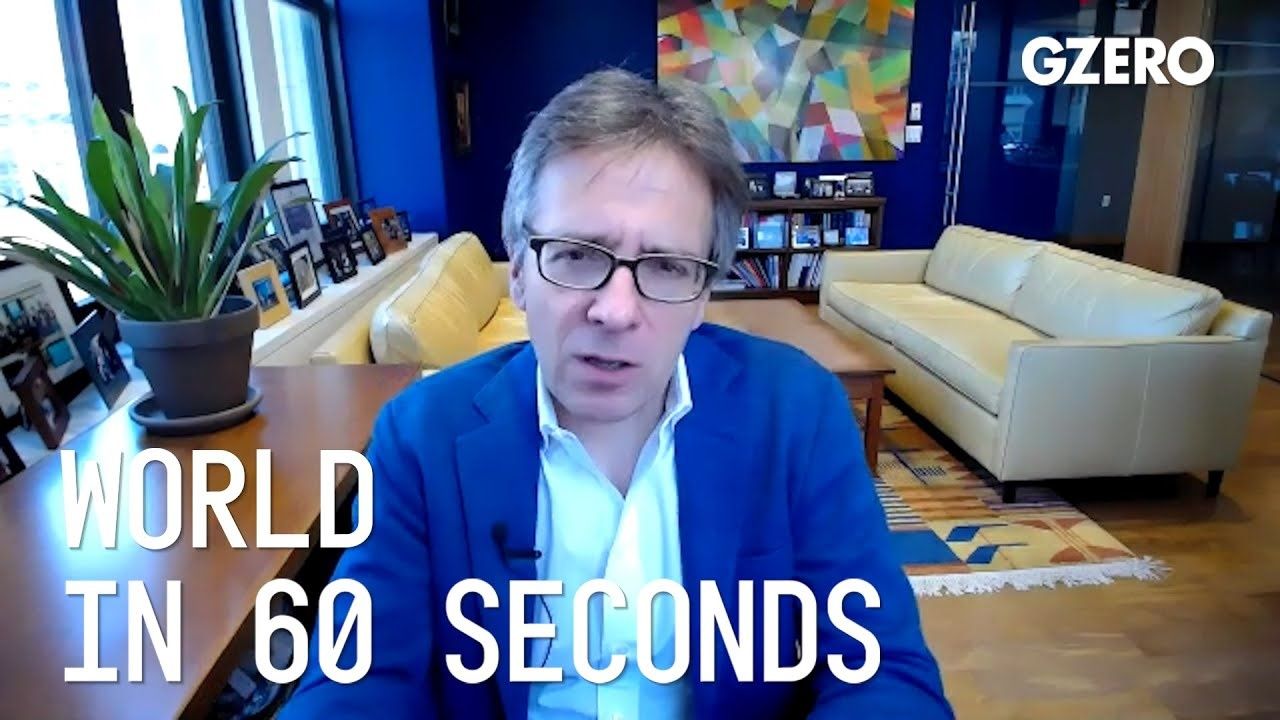In 60 Seconds
Coronavirus in Wuhan; Tanzanian Papayas; Maduro's Strength in Venezuela

Coronavirus in Wuhan; Tanzanian Papayas; Maduro's Strength in Venezuela | World In :60 | GZERO Media

With new coronavirus cases emerging in Wuhan, what does that mean for China?
Well, it means that transmission is very much a concern, even in a country that has the most draconian capacity to keep people in place, quarantine and track and surveil them. So, you've got, I guess, 11 new cases already that they're telling us about. Almost certainly more than that. And they're saying that they're going to test 11 million people in Wuhan in the coming six days. Let's see if they're able to actually get that done. But to be very clear, there is no country in the world that would be able to do broader and more immediate mandatory testing than the Chinese. And what they really want to show, I mean, for all of the backlash internationally for being responsible for the original cover up and the pandemic and also for not handling international leadership well, a lot of the mask diplomacy was more about propaganda than really making a difference for countries that needed the help, but at least in terms of getting the economy running again, while the Americans and Europeans are still locked down, the Chinese are not. And indeed, the supply chain is back up. And that really does matter. And that's what they want to focus on, both for domestic purposes and internationally. So, I think that's a big deal. And we're going to see that China will do everything possible to allow for continued confidence in their supply chain. That matters immensely for Xi Jinping's tenure.
What is going on in Tanzania?
There are definitely leaders around the world who make Donald Trump and Boris Johnson's early efforts look downright Churchillian. And Tanzania may well take the cake, where the president has initially locked a bunch of things down, but not any international flights and not local restaurants and bars and perhaps most importantly, not churches. In fact, he said everyone should go to church because coronavirus cannot live in the body of Christ. Now, this is a PhD in chemistry who is actually saying this. He's also saying that there are very few deaths from coronavirus in the country. He's made it illegal for people to talk about it. And there's been all sorts of military and public security who have been seen hiding away dead bodies, taking them away in the middle of the night. Clearly, this is a much bigger problem on the ground in Tanzania than they want to admit. And the people are suffering from a president who is actively promoting fake news. But the best part of the story is that the way that they know that people are faking positives in cases is that he had a papaya and a goat sent to get tested, samples, and they both came back positive. And so, you know, at the very least, do not eat Tanzanian papayas. That's the one piece of news I can definitely take away from this. I'm certainly not going to. I just want to be clear on that.
After the botched invasion of Venezuela, is Maduro's hand strengthened?
No. His economy is a disaster and his oil is worthless. And the people are very unhappy, but they're also exhausted. The Cuban intelligence is still supporting them on the ground. The Americans aren't going to do very much aside from continuing to strangle the economy. Not like we need a lot of help on that front. And the military is with him. So, I mean, I think his hand was strong and his hand is strong. I mean, it's kind of like Assad right now. You've got a bunch of really horrible leaders around the world and it doesn't matter how disastrous the economy is for the people, their ability to rebel against it just isn't there. Now, I mean, if the army in Venezuela starts feeling like they're not getting fed and the economic implosion starts impacting them, well, fear by itself probably isn't going to keep Maduro in place. You do need the military to have oil. But for now, we don't see that changing. And the opposition is in utter disarray.
100 million: The number of people expected to watch the Super Bowl halftime performance with Bad Bunny, the Puerto Rican superstar and newly minted Album of the Year winner at the Grammys.
Think you know what's going on around the world? Here's your chance to prove it.
An imminent US airstrike on iran is not only possible, it's probable.
Americans are moving less — and renting more. Cooling migration and rising vacancy rates, especially across the Sunbelt, have flattened rent growth and given renters new leverage. For many lower-income households, that relief is beginning to show up in discretionary spending. Explore what's changing in US housing by subscribing to Bank of America Institute.